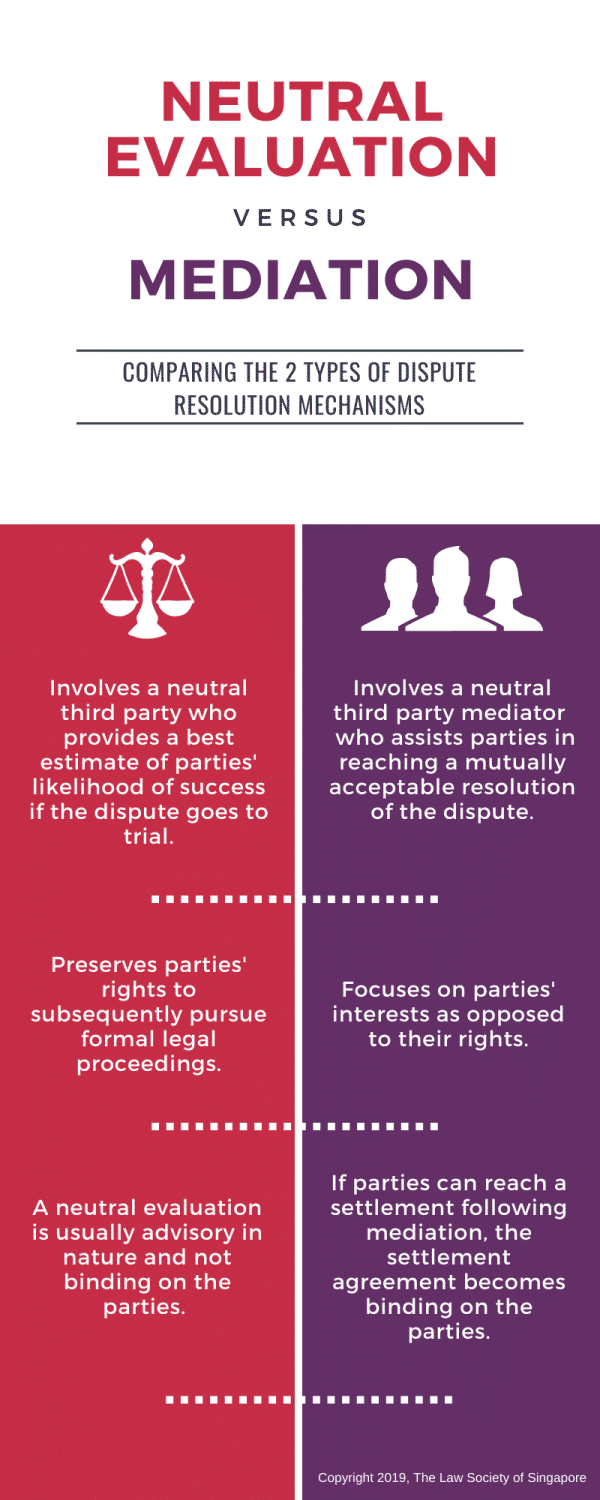Understanding Neutral Evaluation
The information in the Legal Fact Check Service is provided as a public service by the Law Society of Singapore. The information presented on this site is strictly for information. It is not legal advice and should not be treated as an alternative to seeking legal advice from your lawyer. The information provided in the Legal Fact Check Service is not a definitive analysis of the subject and professional legal advice should always be taken before any course of action is pursued.
Whilst the information presented is considered to be correct at the date of publication, changes in circumstances after the date of publication may impact on the accuracy of the information. The Law Society of Singapore reserves the right to amend any content at any time, at its sole discretion, without prior notice.
The Law Society of Singapore shall not be held liable for any damage or loss of any kind, howsoever caused as a result (direct or indirect) of the use of the Legal Fact Check Service, including but not limited to any damage or loss suffered as a result of reliance on the contents contained in or available from this site.
Understanding Neutral Evaluation
When disagreements and disputes between parties cannot be resolved through alternative forms of dispute resolution (‘ADR’) such as mediation, these disagreements and disputes can significantly affect parties’ relationships and become even harder to resolve. Neutral evaluation aims to deal with such disputes and give parties the option to decide if they subsequently wish to assert their rights through formal dispute resolution processes. What is neutral evaluation, and how is it different from ADR mechanisms like mediation? Here are some key facts to note about neutral evaluation.
Fact:
What is neutral evaluation?
Neutral evaluation is a private process where parties agree to refer their disputes to a neutral third party, also known as a Neutral, whose role is to provide a quick and summary evaluation of the dispute. This includes providing an estimate of the disputing parties’ likelihood of success if they were to pursue the matter further through formal proceedings, e.g. in court.
Is neutral evaluation the same as mediation?
While neutral evaluation and mediation are both forms of dispute resolution mechanisms that involve a neutral third party, they differ in several ways:
- Role of neutral
third party: In neutral evaluation,
the Neutral assesses the dispute and provides a best estimate of the parties’
likelihood of success if the dispute were to go to trial. Mediation, on the
other hand, involves a third party mediator who assists the parties in reaching
a mutually acceptable resolution of the dispute.
- Parties’ rights: While the neutral evaluation process preserves the parties’ rights to
subsequently pursue formal legal proceedings, mediation emphasises the
disputing parties’ interests as opposed to their rights.
- Advisory/binding nature: A neutral evaluation is usually advisory in nature and not binding on the parties; in contrast, if parties can reach a settlement following mediation, the settlement agreement becomes binding on the parties.
The infographic below summarises the key differences between neutral evaluation and mediation.


